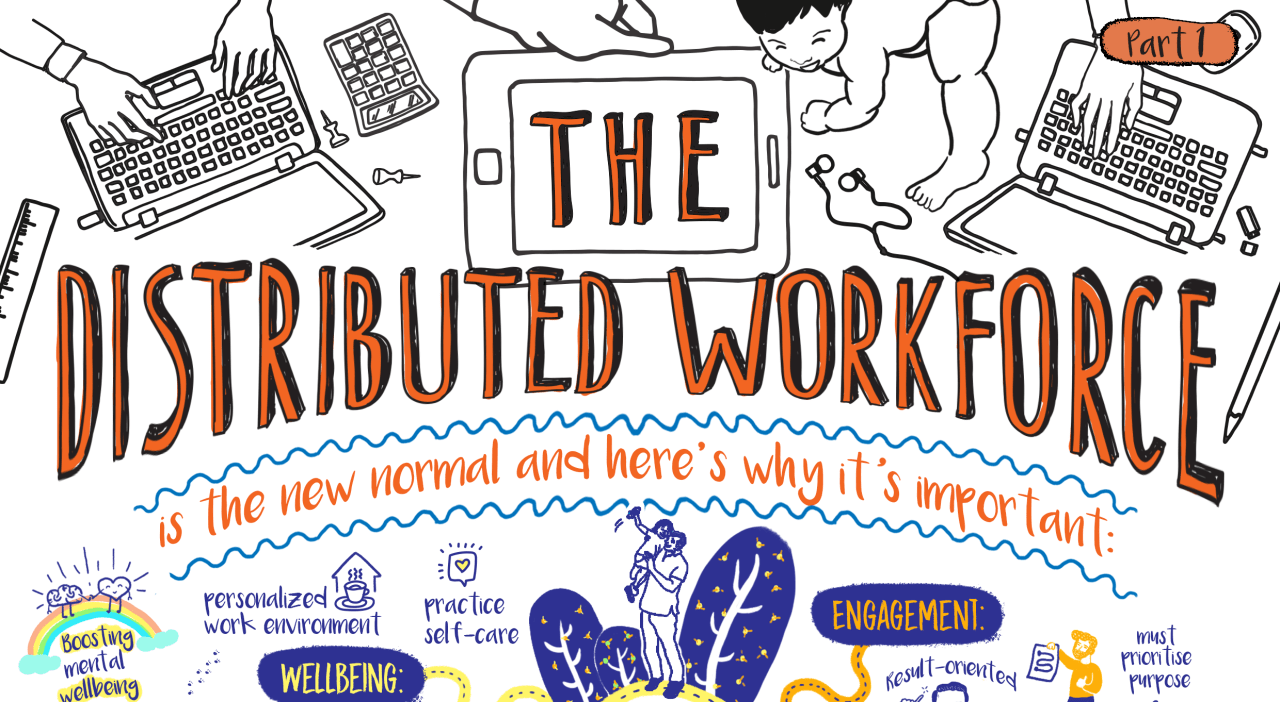As remote work continues to become the new norm, HR Tech has emerged as a game-changer for effectively managing distributed teams. In this blog post, we delve into the transformative power of HR Tech and how it can empower businesses to optimize their remote workforce. From virtual collaboration tools to employee engagement platforms, we explore the key HR Tech solutions that foster seamless communication, productivity, and employee satisfaction in a distributed work environment.
Virtual Collaboration Tools: In the absence of physical proximity, virtual collaboration tools play a pivotal role in connecting team members and enabling effective teamwork. HR Tech offers a myriad of solutions like video conferencing, team messaging apps, and project management platforms. These tools facilitate real-time communication, allowing team members to collaborate, share ideas, and work together on projects, regardless of their geographical locations.Employee Engagement and Wellness Platforms: Keeping remote employees engaged and motivated is a crucial aspect of managing a distributed team. HR Tech platforms designed for employee engagement and wellness play a significant role in achieving this goal. Through interactive surveys, pulse checks, and feedback mechanisms, HR Tech enables HR professionals to gauge employee sentiments, identify pain points, and proactively address concerns. Additionally, wellness applications can promote a healthy work-life balance, offering virtual fitness classes, mental health resources, and stress management tips.

Performance Management and Tracking: HR Tech solutions provide the means to set clear performance goals, track progress, and offer continuous feedback to remote team members. Performance management software allows managers to conduct virtual performance reviews, offer timely recognition, and identify opportunities for growth and development. Such tools foster transparency and ensure that each team member understands their role in contributing to the organization’s success.
Learning and Development Solutions: As remote work becomes more prevalent, continuous learning and upskilling are crucial for both individual growth and organizational success. HR Tech offers learning management systems (LMS) and e-learning platforms that enable employees to access training materials, webinars, and online courses. These tools not only promote self-paced learning but also allow organizations to track employees’ progress and identify skills gaps that need to be addressed.
Data Analytics and Insights: One of the significant advantages of HR Tech is its ability to provide valuable data analytics and insights. HR professionals can leverage data-driven decision-making to monitor employee performance, track team dynamics, and identify areas for improvement. By analyzing these insights, organizations can adapt their strategies to better support their remote workforce and enhance overall productivity.
Conclusion: In the modern era of remote work, HR Tech has become an indispensable ally in managing distributed teams effectively. The powerful array of virtual collaboration tools, employee engagement platforms, performance management solutions, learning and development resources, and data analytics provide the foundation for seamless team coordination and success. By embracing HR Tech to its fullest potential, businesses can navigate the challenges of remote work, foster a strong company culture, and empower their distributed workforce to thrive in the digital age.
